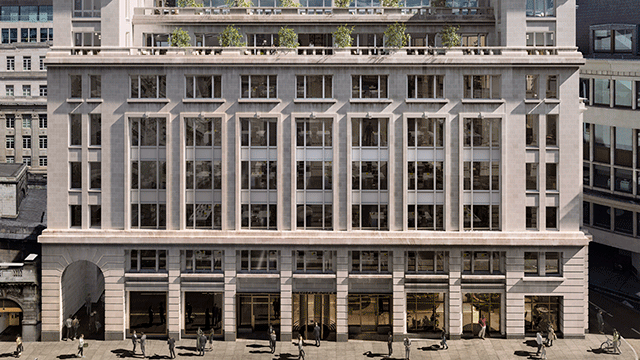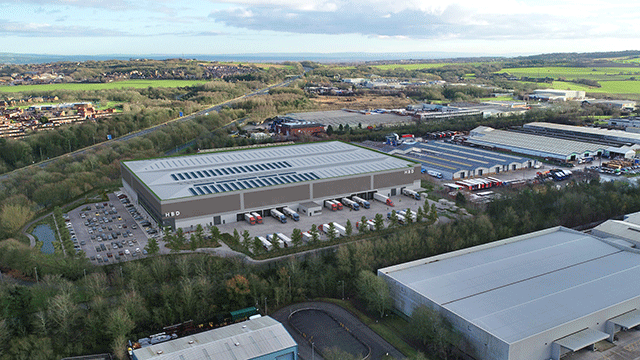by Norman Bowie
In a few weeks’ time the annual reports and accounts of most property companies will be coming through shareholders’ letter boxes for the year ending March 31 1989. It is the occasion when the chairman — often the MD as well — is proud to reveal the excellence of the past and the wonderful future in store. We have been able to obtain a final draft of the report on — Estates plc and thought that readers and serious investors might well be interested in reading it.
“The non-executive directors resolved that this year they would give the shareholders their own review of the affairs and the state of the company, rather than relying on the personal comments of the chairman. The company, one of the largest in the property world, is, after all, owned by you, the shareholders, and all the directors are merely your employees.
“Your company has a wide range of activities related to land and buildings ranging from agricultural through residential to the commercial sectors. It has occasionally strayed from the home market and ventured overseas, usually following a visit (or holiday?) of the chairman. Overseas investments have generally underperformed those in our own patch — the one we really understand and which gives the best results. The company has withdrawn at no cost from a mega joint venture in Seoul, South Korea. We have a phased programme for a complete withdrawal from overseas except that we shall retain our expanding chain of franchised ‘English Take-aways’ in South East Asia which produces a growing reliable cash flow with little capital tied up.
“In the recent construction boom our contracting arm has not shrunk and continues to gain experience. We have decided to follow the recent fashion and adopt some constructive accounting policies, which are set out in detail in the accounts. The company’s brand names, such as Busy Bee Business Parks and Heigh Hi-tech Heigh-Ho buildings, are nationally known and are of value. Food and other manufacturers are now attributing asset values to their brand names, but the accountancy profession has no recognised valuation method like surveyors have for land and buildings. So we decided to instruct our surveyors to value these brand names as assets and enhance the total asset value of the company. We have abandoned what we regard as a high-risk policy the practice of passing through to the profit and loss account a time apportionment of estimated profits on unrealised gains arising from properties in course of development, even including cases which are funded and presold. We have also stopped the ‘shunting’ which went on between investment and trading stock properties.
“As an innovative company we have introduced a direct debit system for our tenants to pay rent and also offer a monthly instalment plan. Our rent arrears are very small. Tenants pay their rents promptly and are not encouraged to have the benefit of interest-free credit at our shareholders’ expense. A distraint bailiff turning up in a supermarket and emptying the shelves in front of shoppers is a major deterrent to slow payers.
“Shareholders will be aware that the enormous development programme built up in the recent boom years has resulted in a much-criticised high debt to equity ratio. Our financiers became very concerned and this affected our share price. We are pleased to say that a radical shake up has occurred and we now have transferred many loans and projects to off-balance sheet companies and our lenders for some reason have felt happier to have the security of specific properties on a non-recourse basis. We shall watch the new Companies Bill in this connection.
“Deep discounted bonds have been issued to reduce interest charges. The result of all these arrangements is that the company now enjoys an enhanced profit prospect and much improved net asset value. We will continue to add to our profits by the purchase of carefully selected high-yield properties in exchange for our shares with their much lower yield. Short-term borrowings related to LIBOR have been repaid and replaced by a long-term debenture at a much lower rate — the interest rate curve is unusual and is always worth watching.
“A high debt-to-asset-ratio policy carries a high pay-out of interest which induces owners to adopt unsound policies; so high interest rates with a high pay-out consequence are really a tax on a sound company policy.
“Turning to the future, we find forward planning difficult as the international and national economic outlook is somewhat confused. There are plenty of economic gurus around with a balanced mixture of bears and bulls. There is no doubt that property values have been moving up in a one-way street for some years. The boom demand for space has been met, as always, by a full response from developers of varying experience. The property cycles have usually created a feast of space resulting in the emergence of a tenants’ market. If this coincides with an economic downturn, burdened by high interest rates, the consequences will be felt by rents and capital values. The manufacturer of space carries the risks of a long time-lag, and cannot cut off the supply on short notice like widget-makers can, so the space consumer benefits by driving hard bargains to soften prices.
“If this scenario coincides with any adverse effect on rental levels from the introduction of the non-domestic rate and VAT, the bears may well be proved right. In that event values will fall but we shall be sheltered by our improved asset/debt ratio. We shall have also passed the risk on the more dicey development schemes to the lenders, many of whom, having come from overseas with an urge to build up a loan book, queued up for projects.
“The retail sector is one of the stock market’s current most unpopular lines with a poor outlook for consumer spending, while the vast increase in new space in new locations makes us very careful on the selection of new projects, as land values could be on the shift. The game is to spot the mall which will score in shoppers’ eyes. Our securities division have spotted that those blue chip retailers, whose shares yield more than the shop from which they trade, could be bought as an investment.
“We have completed and fully let our City of London development so we can sit back and watch the market move, having effectively passed the buck to our finance house tenants as they find their expectations of their own market share and volume fade like the mist at sunrise. The company refused to concede early breaks in leases so the tenants may have to sweat it out, as in 1975-76, with reverse premiums changing hands. Perhaps the professions will continue to expand in their turn, planning to grab an increase in their market share before they, too, enter the almost inevitable shrink stage of their cycle.
“The drift of population out of the larger towns has justified our Busy Bee Business Parks, with their one-car space per employee plus leisure facilities — a daily swim keeps heart disease away. The impact of the greater growth of the car population to that of people and the need for accessibility and parking is still underestimated by the market — so its imperfections still give us those opportunities revealed only to those who research and understand the movement of values in the market. A seat of the pants view does not always work. Any assessment of true prices and values depends on proper and full information, and then its correct evaluation.
“Every forecast projects growth in the British economy, coupled with considerable investment by industry. Unemployment continues to fall and the workforce rises, so more space, particularly of modern design and amenities, is needed. The conundrum to be solved is to secure a location where demand will outstrip supply. The recent surge in provincial office rents does not over-impress us, as they have come from low levels to that where reproduction costs yield viable returns and then the developers flock in, some with vast schemes, to create an oversupply and a flattening of rents.
“Should a downturn come the company is now well placed, with adequate unborrowed liquid resources and its development programme is balanced against real asset value — we do not seek to be the biggest creator of unlet space of all time.
“Shareholders will see that there is an item of special business, namely to amend the share incentive scheme. We were concerned that it worked one way only. The changes will incorporate a claw back scheme so that underperformance of the company’s share measured against the property sector of the All-Share Index will mean that senior management will have to surrender back to the company shares gathered in by them cheaply when the price outperformed the index. We believe this is only fair to shareholders and a restraint on impetuousity in executives.
“We detected earlier in the year the first indications that a leveraged management buyout could be a possibility. It has been interesting to see in the market how many LMBOs have made fortunes for the managers when really their efforts and skills, properly rewarded, should have been for the benefit of the owners — the shareholders. The steps that have been taken this year have, we believe, avoided any risk of this happening to your company.
“The coming year could be difficult with the unknowns at home and abroad but we are confident that the company is now in good shape.”








